
Metal Gear Solid is a 1998 action-adventure stealth video game developed and published by Konami for the PlayStation. It was directed, produced, and written by Hideo Kojima, and follows the MSX2 video games Metal Gear and Metal Gear 2: Solid Snake, which Kojima also worked on. It was unveiled at the 1996 Tokyo Game Show and then demonstrated at trade shows including the 1997 Electronic Entertainment Expo; its Japanese release was originally planned for late 1997, before being delayed to 1998.
A stealth game is a type of video game in which the player primarily uses stealth to avoid or overcome opponents. Games in the genre typically allow the player to remain undetected by hiding, sneaking, or using disguises. Some games allow the player to choose between a stealthy approach or directly attacking antagonists, but rewarding the player for greater use of stealth. The genre has employed espionage, counter-terrorism, and rogue themes, with protagonists that are special forces operatives, special agents, secret agents, thieves, ninjas, or assassins. Some games have also combined stealth elements with other genres, such as first-person shooters and also platformers.
Metal Gear is a franchise of stealth games created by Hideo Kojima. Developed and published by Konami, the first game, Metal Gear, was released in 1987 for MSX home computers. The player often takes control of a special forces operative, who is assigned the task of finding the titular superweapon, "Metal Gear", a bipedal walking tank with the ability to launch nuclear weapons.
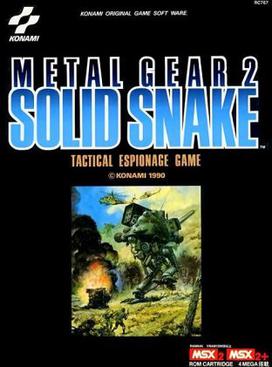
Metal Gear 2: Solid Snake is a 1990 action-adventure stealth video game developed and published by Konami for the MSX2 computer platform. It serves as a sequel to the MSX2 version of the original Metal Gear, written and designed by series's creator Hideo Kojima, who conceived the game in response to Snake's Revenge, a separately-produced sequel that was being developed at the time for the NES specifically for the North American and European markets. The MSX2 version of Solid Snake was only released in Japan, although Kojima would later direct another sequel titled Metal Gear Solid, which was released worldwide for the PlayStation in 1998 to critical acclaim. This later led to Solid Snake being re-released alongside the original Metal Gear as additional content in the Subsistence version of Metal Gear Solid 3 for the PlayStation 2 in 2005. It was also included in the HD remastered ports of Metal Gear Solid 3 released for PlayStation 3, PlayStation Vita, and Xbox 360, and was given a standalone re-release in Japan as a downloadable game for mobile phones and the Wii Virtual Console.
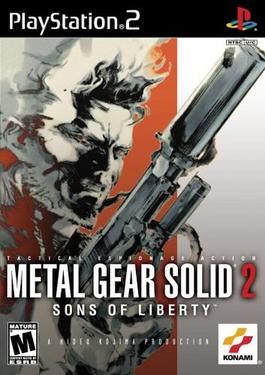
Metal Gear Solid 2: Sons of Liberty is a 2001 action-adventure stealth video game developed by Konami Computer Entertainment Japan and published by Konami for the PlayStation 2. Originally released on November 13, it is the fourth Metal Gear game produced by Hideo Kojima, the seventh overall game in the series and is a sequel to Metal Gear Solid (1998). An expanded edition, titled Metal Gear Solid 2: Substance, was released the following year for Xbox and Windows in addition to the PlayStation 2. A remastered version of the game, Metal Gear Solid 2: Sons of Liberty - HD Edition, was later included in the Metal Gear Solid HD Collection for the PlayStation 3, Xbox 360, and PlayStation Vita. The HD Edition of the game was included in the Metal Gear Solid: Master Collection Vol. 1 compilation for Nintendo Switch, PlayStation 4, PlayStation 5, Windows, and Xbox Series X/S, which was released on October 24, 2023.

Metal Gear Solid 3: Snake Eater is a 2004 action-adventure stealth video game developed and published by Konami for the PlayStation 2. It was released in late 2004 in North America and Japan, and in early 2005 in Europe and Australia. It was the fifth Metal Gear game written and directed by Hideo Kojima and serves as a prequel to the entire Metal Gear series. An expanded edition, titled Metal Gear Solid 3: Subsistence, was released in Japan in late 2005, then in North America, Europe and Australia in 2006. A remastered version of the game, Metal Gear Solid 3: Snake Eater - HD Edition, was later included in the Metal Gear Solid HD Collection for the PlayStation 3, Xbox 360, and PlayStation Vita, while a reworked version, titled Metal Gear Solid: Snake Eater 3D, was released for the Nintendo 3DS in 2012. The HD Edition of the game was included on the Metal Gear Solid: Master Collection Vol. 1 compilation for Nintendo Switch, PlayStation 4, PlayStation 5, Windows, and Xbox Series X/S on October 24, 2023. The same year, Konami announced a remake, entitled Metal Gear Solid Delta: Snake Eater, set to release for PlayStation 5, Windows, and Xbox Series X/S in 2024.

Iron Man / X-O Manowar in Heavy Metal is a video game published by Acclaim Entertainment and developed by Realtime Associates for the PlayStation, Sega Saturn, Game Boy, Game Gear, and MS-DOS in 1996. It is a one or two-player side-scrolling action game in which the player battles villains from Marvel Comics' Iron Man and Valiant Comics' X-O Manowar comic book series. It was met with negative reviews which criticized it for dull gameplay and outdated graphics.

Metal Gear Solid: Portable Ops, officially abbreviated MPO, is a 2006 action-adventure stealth video game developed and published by Konami for the PlayStation Portable. The game was directed by Masahiro Yamamoto and written by Gakuto Mikumo, with series creator Hideo Kojima acting as producer.

Battlefield: Bad Company is a first-person shooter video game developed by DICE and published by Electronic Arts for the PlayStation 3 and Xbox 360. Part of the Battlefield series, it was released in North America on 23 June 2008, followed by a European release on 26 June. The game was hinted at just before the release of Battlefield 2, and announced sixteen months later.
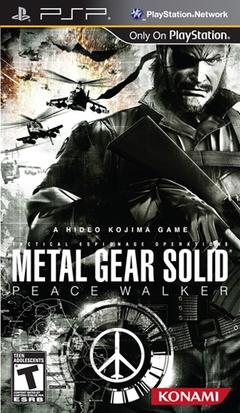
Metal Gear Solid: Peace Walker is a 2010 stealth game developed and published by Konami. It is the seventh Metal Gear game written, directed, and designed by Hideo Kojima, and the fifth installment of the Metal Gear Solid series, as well as the fourth Metal Gear game made specifically for the PlayStation Portable, following Metal Gear Solid: Portable Ops. A remastered version of the game titled Metal Gear Solid: Peace Walker - HD Edition was later released for the PlayStation 3 and Xbox 360 as part of the Metal Gear Solid HD Collection in North America and Europe and as a stand-alone retail release in Japan.
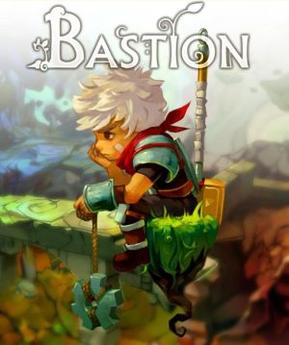
Bastion is an action role-playing video game developed by independent developer Supergiant Games and originally published in 2011 by Warner Bros. Interactive Entertainment. In the game, the player controls "the Kid" as he moves through floating, fantasy-themed environments and fights enemies of various types. It features a dynamic voiceover from a narrator, and is presented as a two-dimensional game with an isometric camera and a hand-painted, colorful art style. Bastion's story follows the Kid as he collects special shards of rock to power a structure, the Bastion, in the wake of an apocalyptic Calamity.
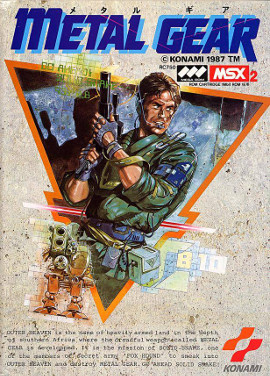
Metal Gear is an action-adventure stealth video game developed and published by Konami for the MSX2. It was released for the system in Japan and parts of Europe in 1987. Considered to have popularized the stealth game genre, it was the first video game to be fully developed by Hideo Kojima, who would go on to direct most of the games that followed in the Metal Gear series. A reworked port of the game was released for the Famicom a few months later, which later saw release in international markets for the NES over the following two years; this version was developed without Kojima's involvement and features drastically altered level designs, among other changes.

Worms Revolution is a 2D artillery turn-based tactics video game developed by Team17 and is part of the Worms series. It was released on PlayStation 3, Windows via Steam and Xbox 360 in October 2012. An OS X version was released on June 6, 2013. A PlayStation Vita version including all three previously released downloadable packs and titled Worms Revolution Extreme was released on October 8, 2013. This version of the game was included as part of a promotional bundle alongside the PlayStation TV system. Like previous games in the series, gameplay is 2D and turn-based, but it is rendered with a new 3D engine. There are both single player and multiplayer modes with up to four players online or local hotseat.

Metal Gear Solid V: The Phantom Pain is a 2015 action-adventure stealth video game developed and published by Konami. Directed, written, and designed by Hideo Kojima, it is the ninth installment in the Metal Gear franchise, following Metal Gear Solid V: Ground Zeroes, a stand-alone prologue released the previous year. Set in 1984, nine years after the events of Ground Zeroes, the story follows mercenary leader Punished "Venom" Snake as he ventures into Soviet-occupied Afghanistan and the Angola–Zaire border region to exact revenge on those who destroyed his forces and came close to killing him during the climax of Ground Zeroes.
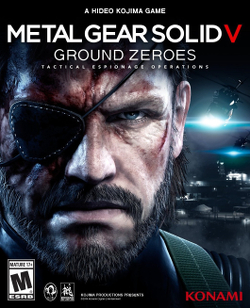
Metal Gear Solid V: Ground Zeroes is a 2014 action-adventure stealth video game developed and published by Konami. It is the eighth game in the Metal Gear series directed, written and designed by Hideo Kojima, and serves as a prologue to Metal Gear Solid V: The Phantom Pain, released the following year. Set in 1975, a few months after the events of Metal Gear Solid: Peace Walker, the story follows Snake as he infiltrates an American black site in Cuba called Camp Omega, attempting to rescue Cipher agent Paz Ortega Andrade and former Sandinista child soldier Ricardo "Chico" Valenciano Libre.

Unepic is a role-playing platformer video game developed by Francisco Téllez de Meneses and various collaborators and published by Ninagamers for Windows, MacOS, Linux, Wii U, PlayStation Vita, PlayStation 4, Xbox One, and Nintendo Switch.
Volume is a stealth and indie game by Mike Bithell Games. It was released for Microsoft Windows, OS X, and PlayStation 4 in August 2015, and the PlayStation Vita in January 2016. The game uses stealth mechanics inspired by Metal Gear Solid series, allowing the player to plan courses of action to work through levels without being detected by guards, dogs, and automated security turrets to reach specific objectives. In addition to the game's levels, Volume supports user-made levels that can be shared with others. The game presents a modern take on the Robin Hood legend, where a young thief discovers a plot for a military coup involving various heists, and uses a device called "Volume", with the assistance of its artificial intelligence to perform these heists in a virtual manner and broadcasting them to the world at large to make the coup known. The story is presented with the help of voice actors Charlie McDonnell, Danny Wallace, Dan Bull, James Stephanie Sterling, and Andy Serkis.
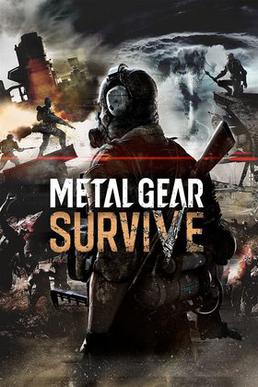
Metal Gear Survive is a 2018 survival game developed by Konami Digital Entertainment and published by Konami. The game was released for PlayStation 4, Windows, and Xbox One in February 2018. It is the first Metal Gear game to be developed following the series' creator Hideo Kojima's departure from Konami in late 2015, and the first since 1990's Snake's Revenge to be made without Kojima's input. Survive takes place between the events of Metal Gear Solid V: Ground Zeroes and Metal Gear Solid V: The Phantom Pain, and follows the Captain, an MSF soldier who enters a parallel dimension and establishes a local command center to unravel the mysteries of a strange virus that turns people into zombie-like creatures.
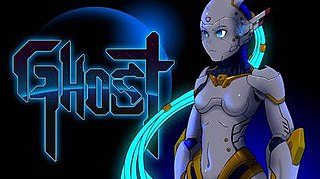
Ghost 1.0 is a Metroidvania video game developed and published by Francisco Téllez de Meneses and an unnamed development team for Windows, Xbox One, Nintendo Switch, and PlayStation 4. Set in a high-tech future, the game follows Ghost, an artificial intelligence working with a pair of hackers against a shady android corporation.

Biomutant is an action role-playing game developed by Swedish developer Experiment 101 and published by THQ Nordic. The game was released on May 25, 2021, for PlayStation 4, Windows, and Xbox One. Versions of the game for PlayStation 5 and Xbox Series X/S were released in September 2022. A port for the Nintendo Switch was released in May 2024. The game received mixed reviews from critics and sold 1 million units by August 2021.

















